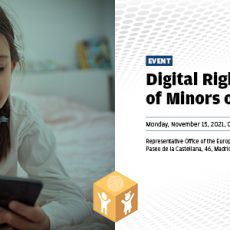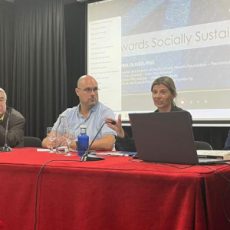
On Monday, May 17, World Telecommunication and Information Society Day (WTISD) is once again being celebrated. The commemoration is the result of a 2006 resolution from the UN General Assembly. Its purpose? To promote knowledge on the possibilities for development and economic and social prosperity from the Internet and other information technologies.
Fifteen years have passed since then; given the speed of the digital transition, further accelerated by the pandemic, it’s a whole new world. In 2006, browsing speed on the Internet was still very limited, nobody knew what blockchain or edge computing was, the iPhone didn’t exist, and Netflix distributed DVDs.
Moreover, the use of social networks was also far from its current pervasiveness; Instagram, for example, had not yet been born. We had barely heard of fake news, cyberattacks, digital rights, or the value of data for our societies and administrations. Today, these are realities that form part of the public debate and pose a challenge for our democracies.
This doesn’t mean to imply that the original resolution from the United Nations that led to World Telecommunication & Information Society Day was poorly focused. In our opinion, it still contains relevant viewpoints. For example, encouraging steps to bridge the digital divide, or ensuring that all countries can “benefit fully from the potential of information and communication technologies”.
But, generally speaking, the WTISD has become passé. And all of us who are interested in the digital transformation are less naive today. We welcome the huge opportunities from digitalization, but we know its risks.
For a WTISD adapted to the realities of 2021
In 2021, the digital ecosystem is much more advanced and complex than at the beginning of this century. The Internet, born with the desire to be an instrument for the exchange of information, free and without borders at the disposal of humanity, has evolved, becoming an essential setting in our lives.
And we speak naturally about the great advances in artificial intelligence, blockchain technology, algorithms, the rollout of 5G, the Internet of Behaviour, or fake news, among other technological realities in which the citizen can say little, or nothing at all.
The digital ecosystem is dominated by a small handful of digital giants, mainly North American and Chinese companies operating almost as de facto monopolies. These large, non-European companies are judge and jury in the digital world, setting the rules of the game for citizens, businesses, and even governments.
In recent months, the pandemic has further accelerated these trends, forcing citizens, institutions, and private businesses to make a rapid and forced digital transition. What has been a crisis for many has represented a great opportunity for a few and, notably, for the digital giants, who have seen their business multiply to the detriment, in many cases, of local shops and businesses. It is not just an effect of free competition: it would be naive not to point out the capacity of these companies to circumvent fiscal and labour requirements that their direct European competitors do indeed comply with.
Our proposal for World Telecommunication and Information Society Day
For all these reasons, we believe it makes no sense to continue celebrating the WTISD as if we were in 2006.
We need a different World Telecommunication and Information Society Day. A day when we reflect on the digital future we want to build for Europe, on the need to defend the digital sovereignty of our continent. And also on the role of European institutions, now that the Digital Services Act and Digital Markets Act are being discussed.
Instead of formal ceremonies and self-indulgent speeches, we have the obligation to face the digital challenge realistically. It’s time to put an end to something that has become superficial and devoid of interest, in order to pave the way for a true World Telecommunication and Information Society Day, one that is citizen-focused, constructive, and pro-European.




